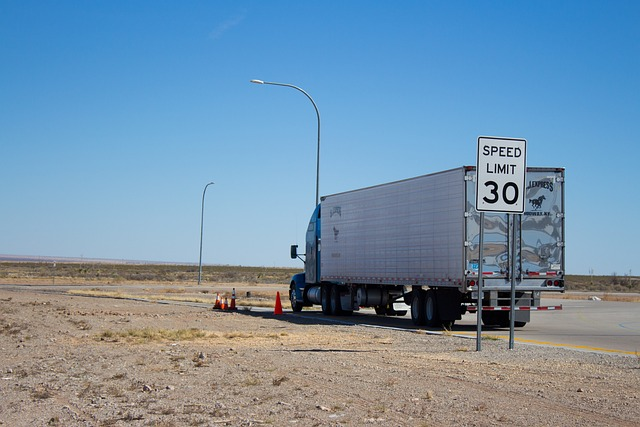In 2019, over 4,000 people died in road accidents involving large truck drivers, making the trucking is one of the most dangerous jobs in the country.
Unsafe driving not only a dangerous job can affect your well-being but also your ability to earn money as a truck driver with a good record. Plus, your unsafe truck driving also can negatively impact the lives of other motorists. Large trucks are much taller and typically way 20 to 30 times more than passenger cars, which can lead to devastating accidents.
Keep reading for six road safety tips that will protect the lives of yourself and others while on the road.

1. Practice Defensive Driving
As a truck driver, you must continually be aware of potential hazards and changes in road conditions. You can reduce the risk of an accident by anticipating potentially hazardous situations and making informed safe decisions while you're behind the wheel.
Practicing defensive driving techniques can mean you're less likely to be involved in or cause an accident. If you don't have accidents, you'll save on insurance claims and costly repairs.
The Three-Second Rule
To best avoid a collision, drivers safe practice the three-second rule, which states you should allow three seconds to pass between the time the vehicle in front of you reaches a place in the road and when the road ahead of you get to the same point.
If inclement weather is present, you should drive safely and should increase the speed limit the gap to five seconds. In icy road conditions, you should increase the speed limits it to ten seconds.
Prepare for Emergencies
Driving over long distances means it's more likely that road conditions will change rapidly from one area to the next.
You can prepare for various emergencies by stocking your truck with a first aid kit, water, snacks, blankets, and a change of clothes. When you're better prepared, you can comfortably wait out unexpected conditions caused by inclement weather conditions, or vehicle repairs.
Be Aware of Blind Spots
According to the National Highway Traffic Safety Administration (NHTSA), blind-spot issues cause around 840,000 accidents and 300 deaths each year.
Typically, these accidents occur when drivers are switching lanes. You can't always trust side and rear-view mirrors when looking for blind spots to change lanes, so always look over your shoulder and out the window when changing lanes.
When merging, leave plenty of room around your tips for truck drivers, and bus drivers, to account for blind spots you may miss.
Always Signal Before Lane Changes and Turns
Although it's against the law, some drivers still don't bother signaling before making turns and lane changes. Usually, this is after driving long stretches of road or become complacent during non-peak or heavy traffic times.
Failing to use your turn signal can increase your speed limit your risk of collision, so always signal—even if you don't see any drivers around you.
Watch Your Speed
When in doubt, always slow down in response to changes on the road—especially during bad weather that causes poor visibility.
By slowing down, you can take the extra time you need to respond to unexpected changes or take corrective action. While you may not be able to prevent an accident altogether, slowing down can decrease the severity in case of a collision.
De-Escalate Road Rage Situations
Finally, it can be tempting to indulge in road rage when you're honked at, cut off, or harassed by other motorists. In this heightened state, you may want to weave between lanes or tailgate other drivers.
Never let your anger control your driving, as you're only putting yourself and other truck drivers at greater risk of an accident. Remember, you're much larger than other vehicles on the road, so take a deep breath and a safe distance between your truck from vehicles driven by angry motorists.
2. Inspect Your Truck Before and After Trips
Before you start driving, establish a thorough vehicle and driver safety inspection practice. The Department of Transportation requires pre-and post-trip inspections, but not just any inspection will do. Always perform a thorough examination and accurately document vehicle issues.
Some safe driver applications will walk you through each part of the inspection and prompt you to upload and annotate photographs of any issues. This allows you to track your inspections and patterns over time, preventing problems and repairs down the road.
3. Avoid Distractions
Distracted driving is one of the top reasons for car accidents. Anything that causes you to take your hands off the wheel or eyes off the road is described as distracted driving.
Distractions may range from changing music or eating lunch while driving to turning to look out the window. The most common distraction, however, is texting while driving.
You can't ensure your safety conscious and that you're driving safely unless driving has your complete attention.

4. Ensure Safe Loading and Unloading Procedures
Practicing safe truck driving tips and habits shouldn't end when you've turned off brake lights on your truck. Always follow safe loading and unloading procedures to protect yourself, other drivers, others, and your cargo.
Best practices require that you maintain three points of contact—including the height and weight limitations, both hands and one foot or two feet and one hand—when entering or exiting your truck's trailer. Always ensure that your load is secured correctly throughout loading and unloading and never pull out of a dock until you know that unloading is complete.

5. Take Breaks
As a truck driver, you're required to take breaks enough rest, of a certain length before you can continue driving long distances. For example, the Federal Motor Carrier Safety Administration orders every truck stop for a break of 30 minutes or more after eight cumulative hours of driving.
However, don't limit your rest to these mandatory breaks.
If you're feeling tired or impaired in any way, always take additional breaks while in work zones en route. You might be off-duty for longer than you'd like, but you can significantly reduce your risk of an at-fault accident by actively avoiding fatigue.

Prevent Accidents With These Safety Tips for Truck Drivers
We hope that these safe-driving and safety tips for truck drivers and bus drivers will keep your life on the road secure and enjoyable.
If you fail to practice safe driving, you can be held accountable if you're in an accident with another driver.
To learn more about the implications of negligent driving, read more about the causes of many truck drivers' accidents and the work of many trucking companies, drivers and accident attorneys.

FAQs
Q1: What does practicing defensive driving involve?
A1: Defensive driving involves being aware of potential hazards, anticipating dangerous situations, and making informed safe decisions. It includes the three-second rule, preparing for emergencies, being aware of blind spots, signaling before a lane change, changes and turns, watching your speed, and de-escalating road rage situations.

Q2: How important is inspecting my truck before and after trips?
A2: It's crucial. The Department of Transportation requires pre-and post-trip inspections. These inspections can help you identify any issues that could potentially cause accidents or breakdowns. It's advisable to document your inspections meticulously to prevent problems and repairs in the future.
Q3: What are some examples of distracted driving that I should avoid?
A3: Distracted driving includes anything that takes your hands off the wheel or eyes off the road. This could range from texting, changing music, eating, or even looking out the window. Driving requires your complete attention for safety.

Q4: What are some safe loading and unloading procedures I should follow?
A4: Always maintain three points of contact when entering or exiting your truck's trailer and ensure your load is secured correctly. Never pull out of a dock until you're certain that unloading is complete.
Q5: How often should I take breaks while driving?
A5: The Federal Motor Carrier Safety Administration mandates a break of 30 minutes or more after eight cumulative hours of driving. However, you should take additional breaks if you're feeling tired or impaired. It's important to actively avoid fatigue to reduce the risk of accidents.

Q6: What are the repercussions of negligent driving?
A6: Negligent driving can lead to severe accidents, damage to your vehicle, and harm to yourself and others. Additionally, you could face legal consequences, and it could negatively impact your ability to earn as a truck driver.

